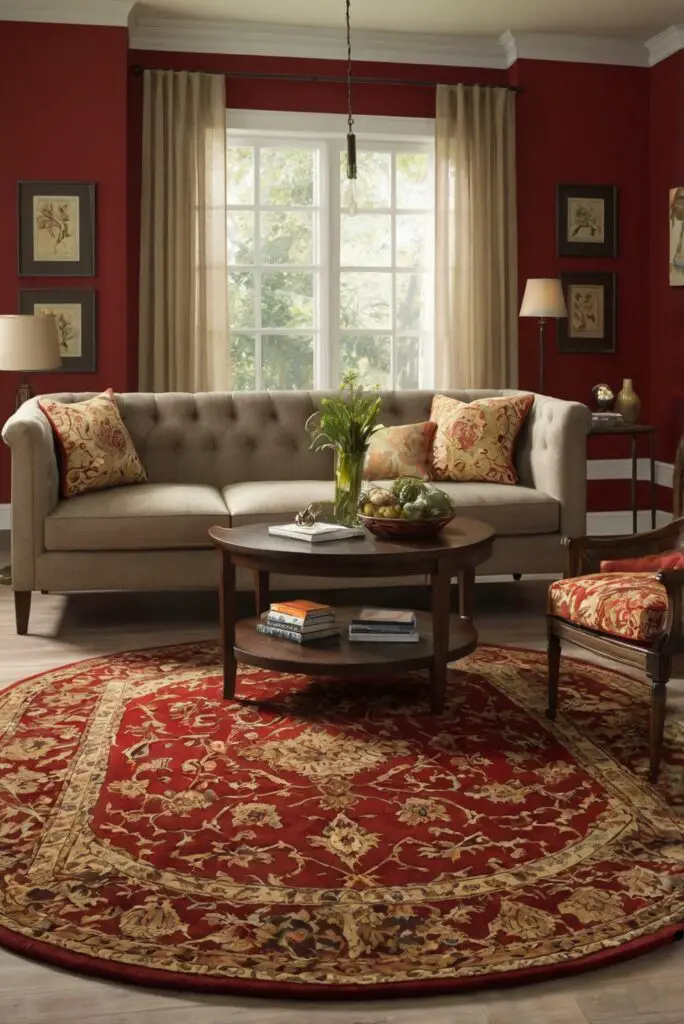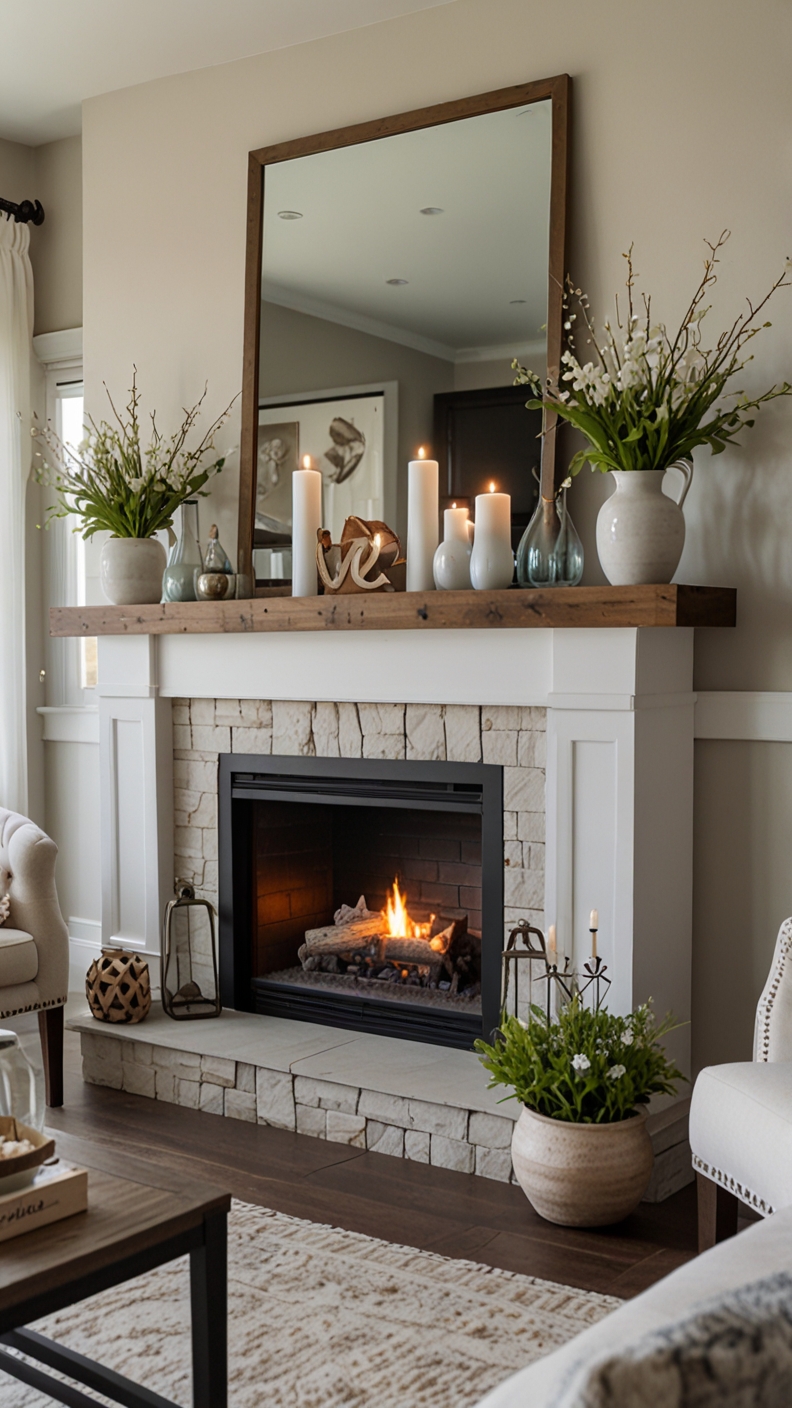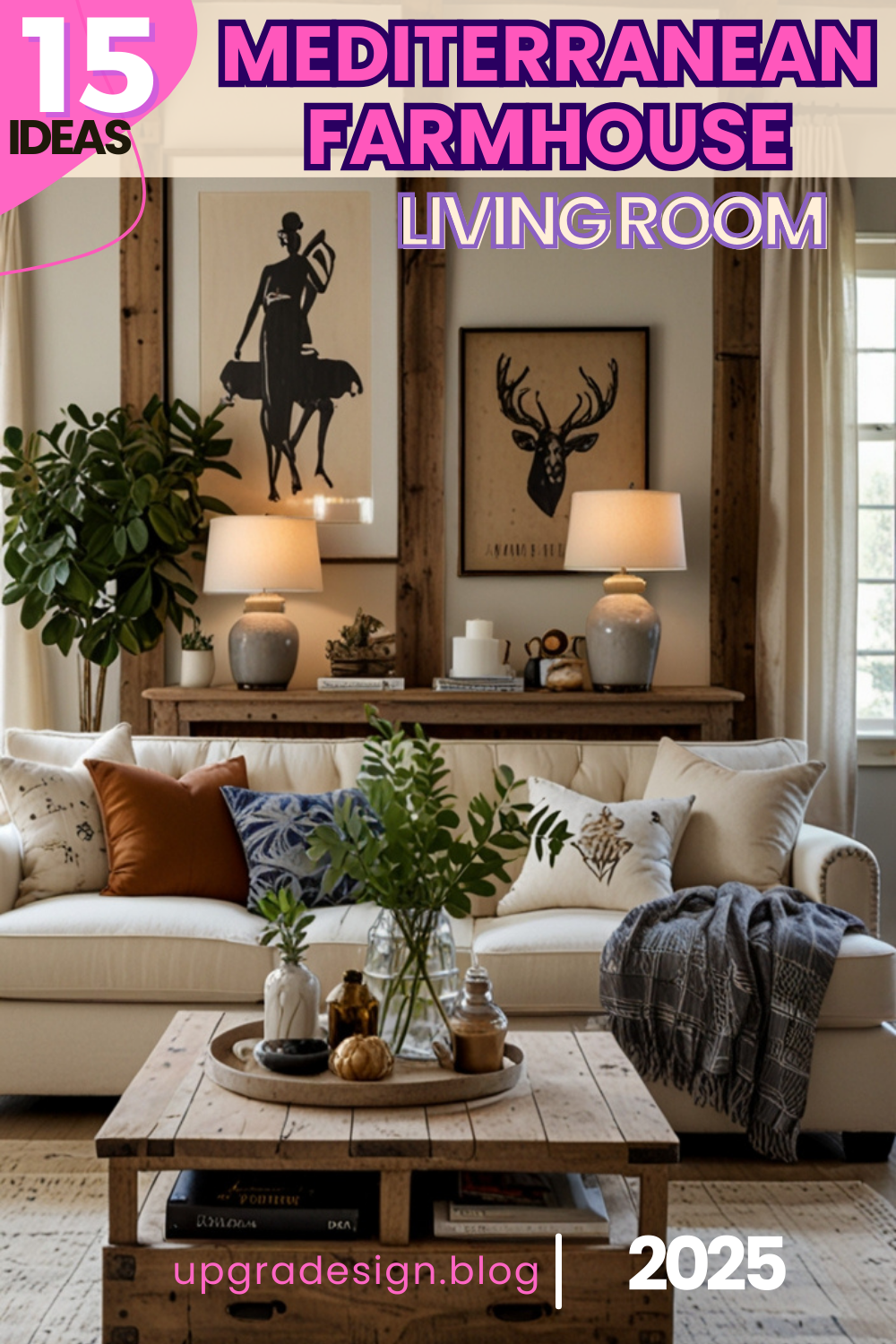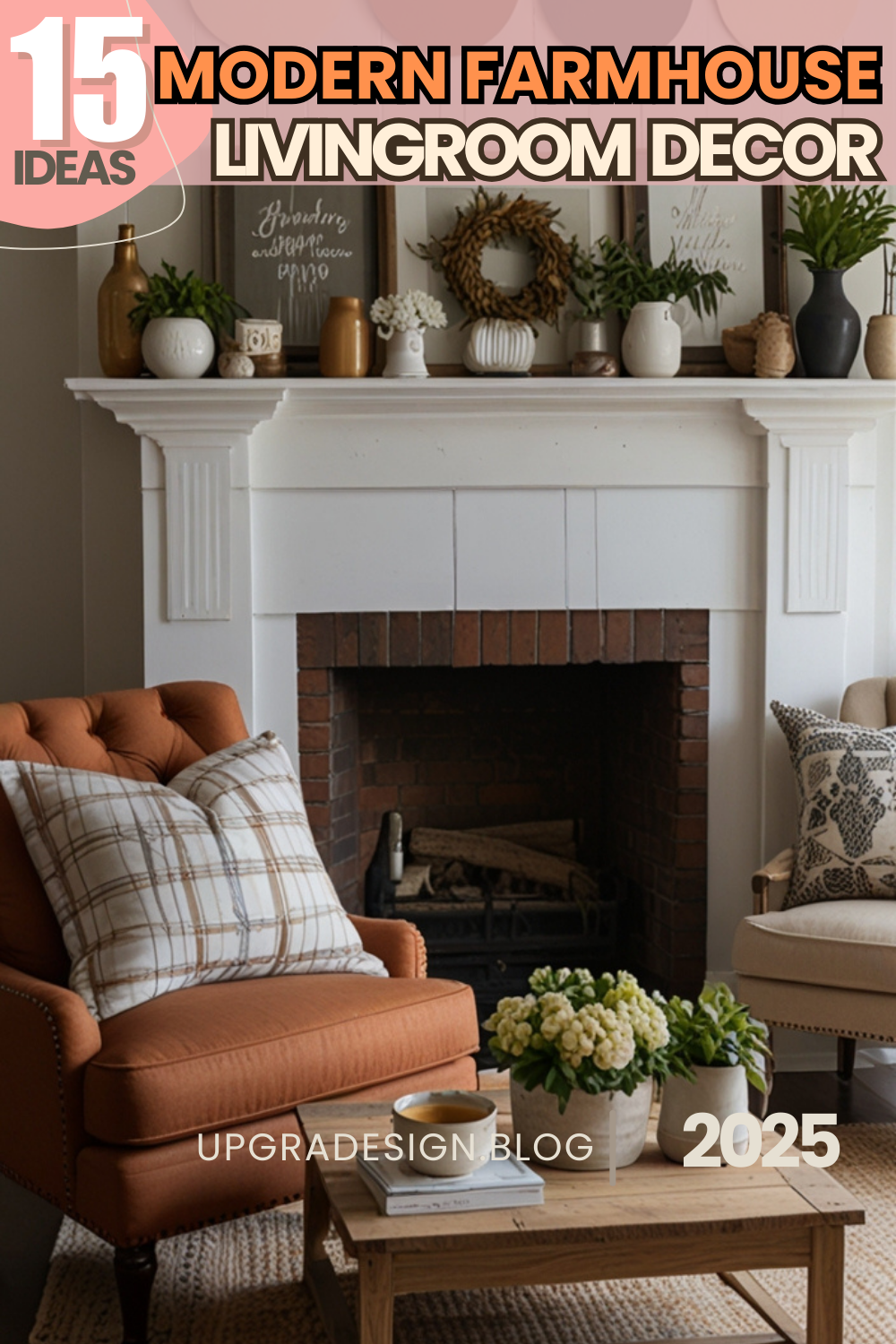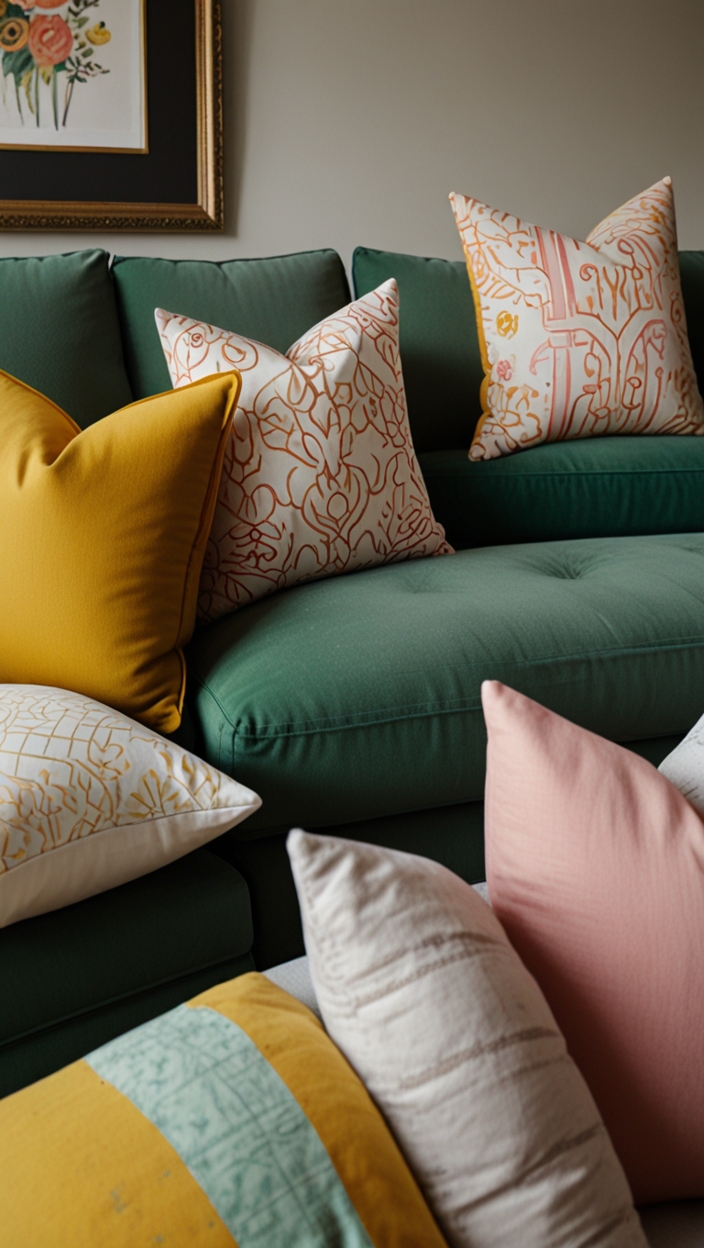Discover how to choose the right rug size for your living room with expert tips from interior designers. Upgrade your space effortlessly!
The size of the rug that works best for your living room space depends on the dimensions of the room and how you plan to arrange your furniture. A good rule of thumb is to ensure that the rug is large enough to fit underneath all the key pieces of furniture in the room, such as the sofa, chairs, and coffee table. This helps to anchor the space and create a cohesive look. Additionally, leaving a border of 12-18 inches between the edge of the rug and the wall can help define the seating area. It’s also important to consider the shape of the rug based on the room layout. Placing a rectangular rug in a rectangular room can enhance the flow, while using a round rug in a square room can add visual interest. This careful consideration of rug size and shape is essential in home decorating for optimal space planning and interior design.
How to determine the correct size of a rug for a small living room?
In a small living room, it is crucial to choose the right size rug to enhance the space without overwhelming it. One effective way to determine the correct size is to leave a border of flooring visible around the rug. This technique creates the illusion of a larger space while still providing the benefits of a rug.
Additionally, the rug should be large enough for all the furniture in the seating area to sit comfortably on it. This ensures that the rug ties the room together and creates a cohesive look. When positioning the rug, make sure it extends beyond the coffee table but doesn’t reach the walls directly. This approach helps in framing the seating area and adds visual interest to the room.
Can I use multiple rugs in a large living room space?
My Lovely Spring Paint for 2025
Ready for a Spring Makeover? Explore the Freshest 2025 Paint Trends!
White Sage/Green SW Pistachio green Soft blue Honeysweet/Orange Pink Sugar Sage Tint BMAs an Amazon Associate, I may earn a commission from qualifying purchases at no extra cost to you.
Using multiple rugs in a large living room can be a great strategy to define different areas within the space. For instance, you can use one rug under the main seating area and another rug under a secondary seating arrangement or dining area. This approach helps in creating visual separation and adds depth to the room.
When using multiple rugs, ensure they complement each other in style and color. It’s also important to leave a consistent border of flooring between the rugs and the walls to maintain balance in the room.
What is the benefit of using an area rug in a living room?
Using an area rug in a living room offers several benefits beyond just aesthetics. One of the main advantages is that a rug can help define the seating area, especially in open-concept spaces where there are no clear boundaries between different zones.
Additionally, a rug adds warmth and comfort to the room, making it more inviting and cozy. It also helps in absorbing sound, which can reduce echoes and make the room acoustically more pleasant. From a design perspective, a well-chosen rug can tie the room’s color scheme together and serve as a focal point in the space.
How to choose a rug that complements the furniture in my living room?
When selecting a rug that complements the furniture in your living room, consider the existing color palette and style of the room. If your furniture is neutral, you have the flexibility to choose a rug with a bold pattern or vibrant colors to create visual interest.
Conversely, if your furniture already has bold colors or patterns, opt for a more subdued rug that complements rather than competes with the furniture. It’s also essential to consider the texture of the rug and how it interacts with the materials of your furniture. For example, a soft shag rug can create a cozy contrast with sleek leather furniture.
What size of rug is recommended for a medium-sized living room?
My fAV Spring DECOR for 2025
Discover Spring’s Best 2025 Decor Combinations – Perfect for Any Room!
Oversized Indoor Plants White Curved Sofas Rugs BOH Brown Cream Moroccan Hype Boho Rug Outdoor Patio Furniture Sets Topfinel Pillow CoversAs an Amazon Associate, I may earn a commission from qualifying purchases at no extra cost to you.
In a medium-sized living room, it’s recommended to choose a rug that accommodates all the primary furniture pieces in the seating area. The rug should extend beyond the coffee table and under the front legs of the main seating pieces, such as the sofa and chairs.
This arrangement creates a cohesive look and helps in visually grounding the furniture. It also provides a comfortable and defined space for the seating area. To determine the right size, consider the proportions of the room and aim for a rug that balances the scale of the furniture and the space.
How to ensure the rug doesn’t overwhelm the space in a small living room?
To prevent a rug from overwhelming a small living room, opt for lighter-colored rugs or rugs with subtle patterns that won’t dominate the space visually. Lighter hues can create an airy and expansive feel, making the room appear larger than it is.
Additionally, choose a rug size that leaves a border of flooring visible around the edges. This technique helps in maintaining a sense of openness and prevents the rug from looking too large for the room. Consider the placement of furniture on the rug and ensure there is a balance between the rug size and the furniture arrangement.
What are the common mistakes to avoid when selecting a rug for a living room?
One common mistake when selecting a rug for a living room is choosing a rug that is too small for the space. An undersized rug can make the room feel disjointed and visually unbalanced. Another mistake is selecting a rug that clashes with the existing color scheme or style of the room.
It’s essential to consider the overall design aesthetic and choose a rug that complements rather than conflicts with the room’s décor. Additionally, avoid placing all furniture legs on the rug, as this can create a cluttered look. Instead, opt for a rug size that allows for a partial furniture placement to maintain a more open and spacious feel.

